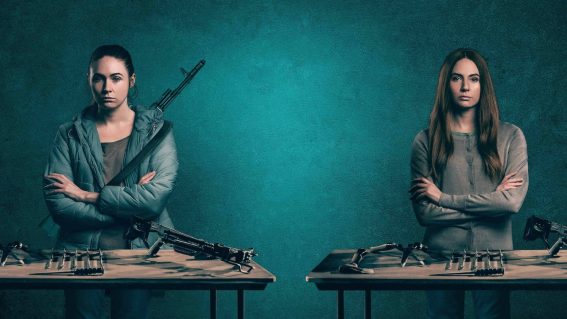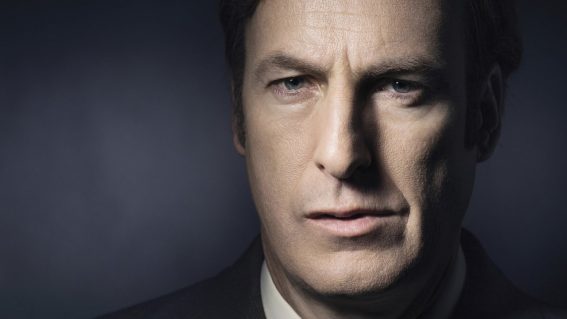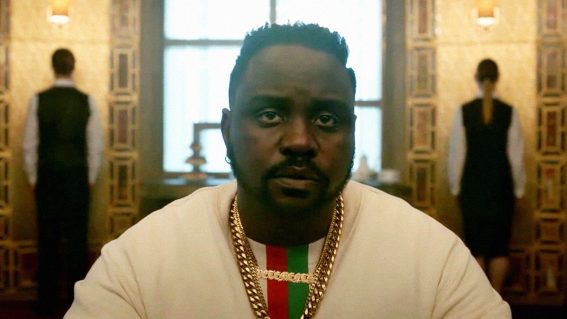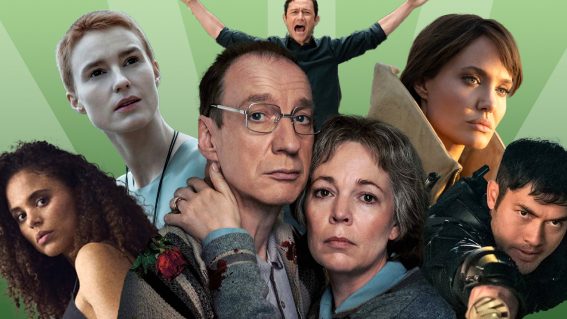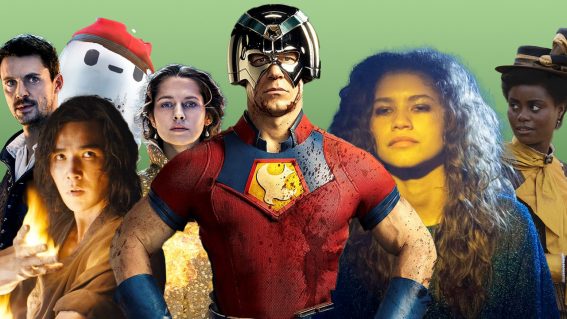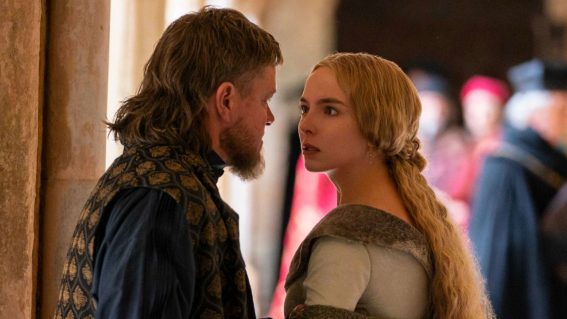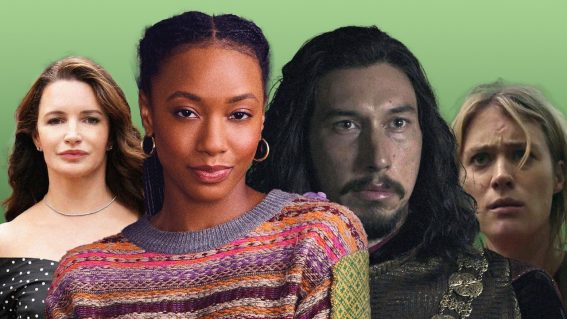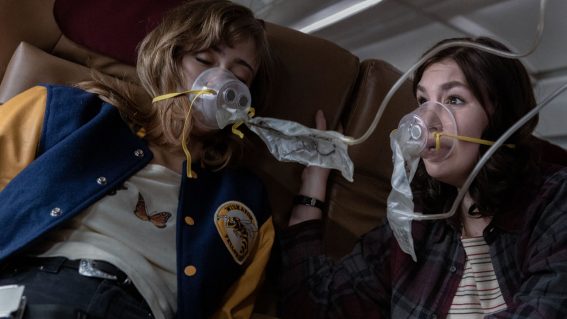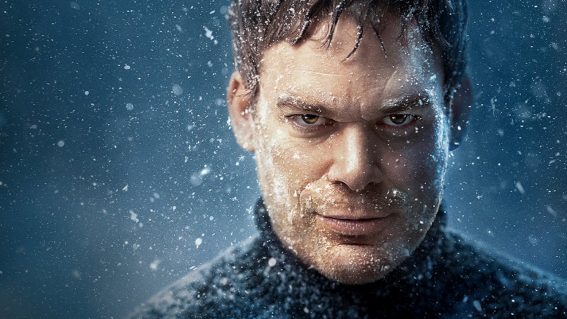We’re Here straddles the line between reality TV and deeper issues doco
New NEON show highlights the most basic of needs – a chance to be yourself.
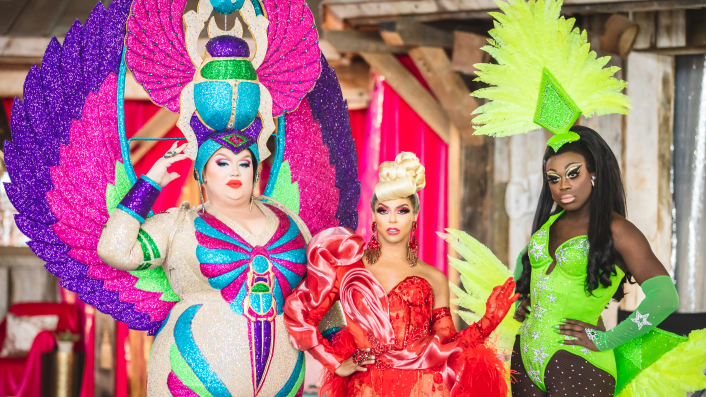
A new show streaming on Neon sees some familiar faces take drag into small-town America. As Tony Stamp discovered, We’re Here packs a hefty emotional punch amid its reality show entertainment.
On Sunday June 14th, as part of the wave of protests against police brutality led by Black Lives Matter, tens of thousands of people marched across America in support of black trans rights, after two black trans women were killed in the space of twenty-four hours. It was just one in an all too frequent series of reminders that as far as we’ve come in terms of inclusion, there’s still a long, long way to go.
See also
* All new movies & series on Neon
* Our other stories on Neon new releases
Pretty heavy start to this piece on a frothy reality show, huh? But We’re Here, while dressed in the trappings of the reality genre, deals with many of the issues the march hoped to address. It straddles the divide between disposable pop entertainment and something much deeper and worthy of being framed as a documentary, regularly dealing with homophobia, trans rights, racism, body shaming, and more. Along the way, it dredges up real, painful emotions in many of its contestants—and indeed this writer—shining a light on queer kids in small-town America who have grown up surrounded by people who at best don’t understand them, and at worst hate them. I’d be lying if I said the show didn’t choke me up pretty regularly over the course of its first season.
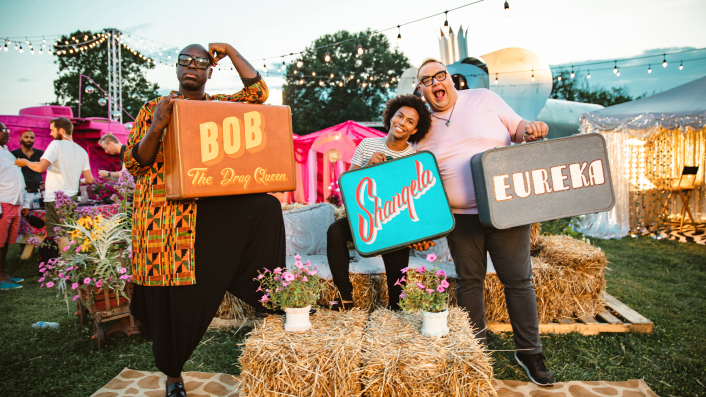
The series has spun off from RuPaul’s Drag Race but is produced by HBO, (behind prestige TV giants like The Sopranos and The Wire), which presumably brings with it some pretty hefty coffers budget-wise. Previous Drag Race winners Bob the Drag Queen, Eureka O’Hara, and Shangela travel across America, putting on shows in small towns with the help of some locals (gay, straight, trans, and so on), a different town per episode. The budget is visible right from the opening credits as the trio drives across beautiful heartland America vistas in their appropriately garish vehicles, before a hard cut to neon opening credits.
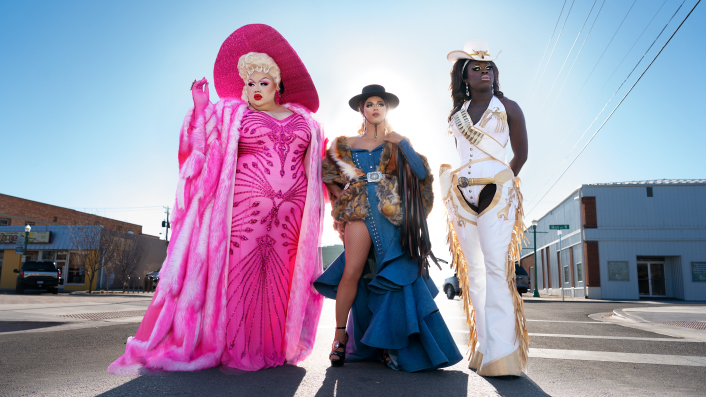
This usually follows an interaction with the town’s locals. The queens saunter through the streets, announcing ‘We’re Here’ and that they’ll be putting on a show. The tone is jovial, but straight away We’re Here feels like it’s scratching at something important as we see the townsfolk encountering drag queens for possibly the first time. Reactions are mostly amused, and amusing, but they make sure to leave in anyone that looks confused, or angry, or scared. In the first episode Eureka O’Hara straight up asks a local man “Do I scare you? Do I make you uncomfortable?”, and while the guy answers in the negative, it’s written on his face. The overwhelming vibe reads as “you don’t belong here”.
At one point Bob, a black American, stumbles across a Confederate flag hanging in public. Her face says it all.
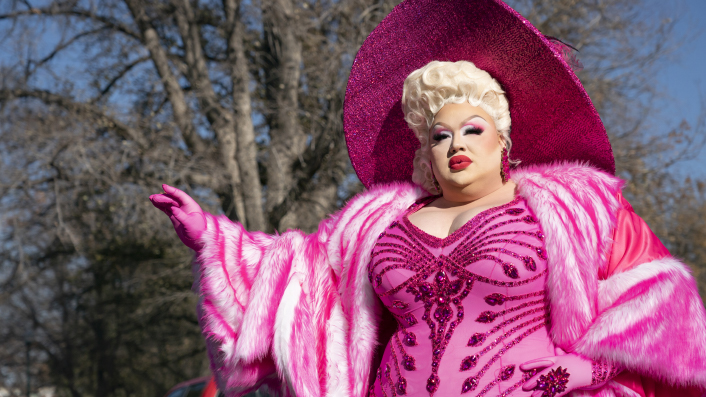
Eureka is the funny one, constantly cracking wise at her co-hosts’ expense as well as her ‘drag daughters’ (men she’s taken under her wing to help them present as women). She’s a gentle giant, who looks to be around six feet plus tall and uses it to her advantage.
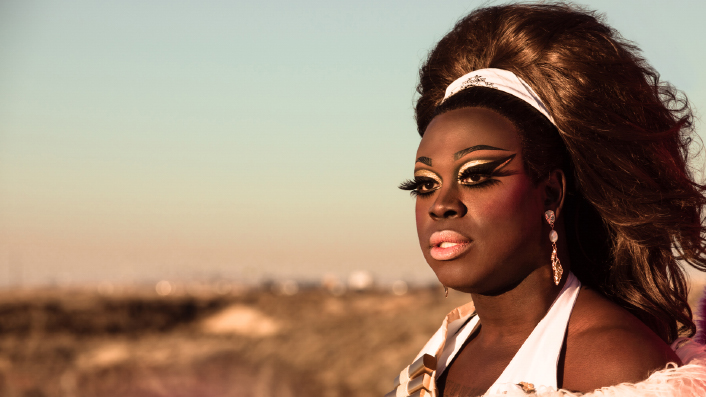
Bob The Drag Queen has the most screen presence, even when presenting as a guy—he favours thick-rimmed glasses and sets his subjects with a steady gaze. He’s often visibly affected by the work, getting emotional at what minorities in these towns are facing. In a candid moment in drag backstage she breaks down—“this shit is important to me” she says through tears. This isn’t a confessional-to-camera type situation either (although the show does have those). It’s one of many times We’re Here manages to capture something in the moment that struck me as very genuine and non-manufactured.
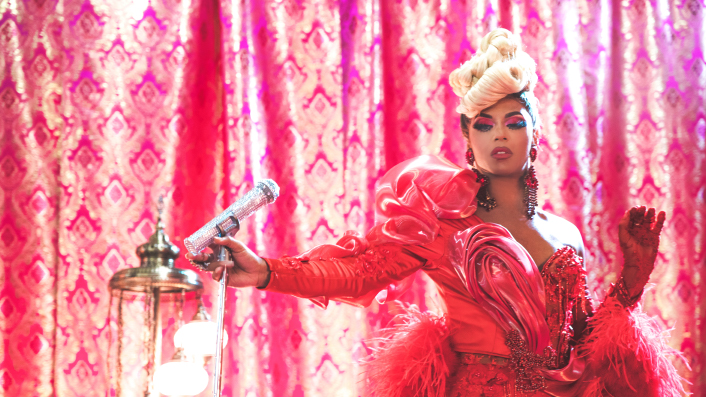
The last queen is Shangela, who as far as I can tell is pure distilled sunshine in human form. Everything she says seems to come from the purest place. I imagine a hug from her would be the most restorative thing ever. When speaking to a trans man/woman couple who have been shunned by their Mormon family, she tells them that all they can do is put love out into the world and hope it spreads, saying their drag show will be “A reflection of love beyond boundaries”. Cue the waterworks.
This is the other facet of the show. While there is plenty of bigotry on display around the margins (at one point a microphone catches a passerby calling Bob, Eureka and Shangela “freaks”), it primarily serves as a way for its drag daughters to experience joy, whether reuniting with estranged family or just being able to be themselves for a night. One episode features a gay kid who performs drag and counts his eighty-something-year-old grandpa as his biggest fan. Grandpa makes it to the show and cries with happiness because he just wants his grandson to be happy and oh excuse me I have a massive speck of emotion in my eye again.
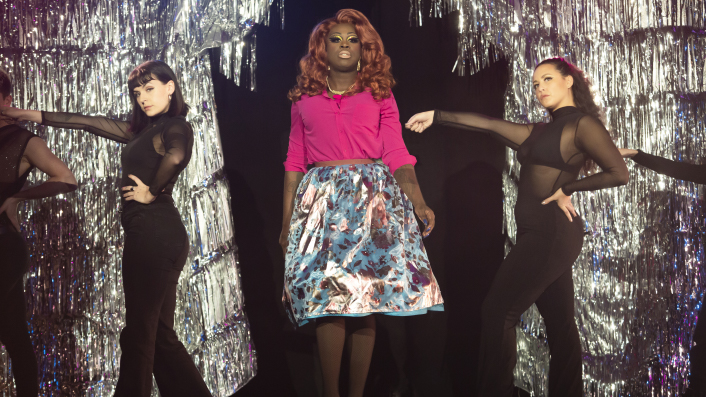
Watching We’re Here, particularly the drag shows that make up the finale of each episode, actually dredged up a memory from my subconscious. When I was around eleven some type of performer came to our school. I think he was a magician or something? Regardless, he picked me out of a crowded school hall and got me to join him on stage and help out with his act. It was fucking mortifying.
This psychological scar might partly explain why I find the climactic drag shows slightly hard to watch. The queens own the stage, of course, but their drag daughters (and sons), are often appearing as women (or men) for the first time, and performing in public for the first time. When it’s someone getting the chance to live their truth that’s obviously heartwarming, but often they’ll feature cis het women or men who are clearly out of their depth, and the results can be cringey.
But hey, that’s a small personal downside to what is generally an explosion of good vibes. Darryl, an African American college admissions officer who compares the struggles of black Americans to those of the LGBTQ community, says “I enjoy being known in this town as a straight ally to gay people”. Watching him clomp around awkwardly in heels knowing that his motives are so pure is ridiculously endearing, like your dad giving it his best go.
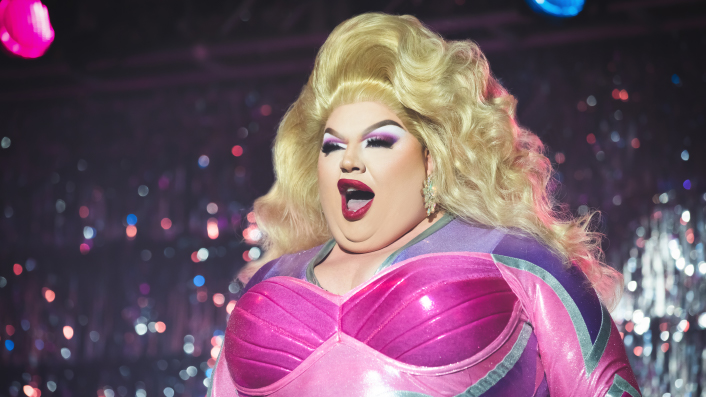
Erica, a mother who rejected her daughter when she came out as bi (“I lost her to the enemy” she says earlier in the episode), performs as a way to try and make amends. Eureka contacts the estranged daughter, Hailey, and she does show up, but when the cameras catch her (as Erica performs in an outfit reading ‘sorry Hailey’) she looks less than impressed. It’s another markedly candid moment—raw, unstaged, much less neat than you might expect in a show like this.
There are times where you can sense reality show-type editing taking over—you know the thing, where someone’s reaction doesn’t quite match what’s been said to them, and you can feel the editors goosing the footage to ramp up its drama. But that’s infrequent, and given the subject matter, forgivable. What comes across most is the hosts’ bottomless supply of empathy, even when dealing with bigots. When Eureka describes his visit to what can only be described as a redneck bar, he’s ludicrously diplomatic, saying “I get it, it’s hard having new people on your turf”. Far too kind, but then you realise he’s been dealing with this shit his whole life.
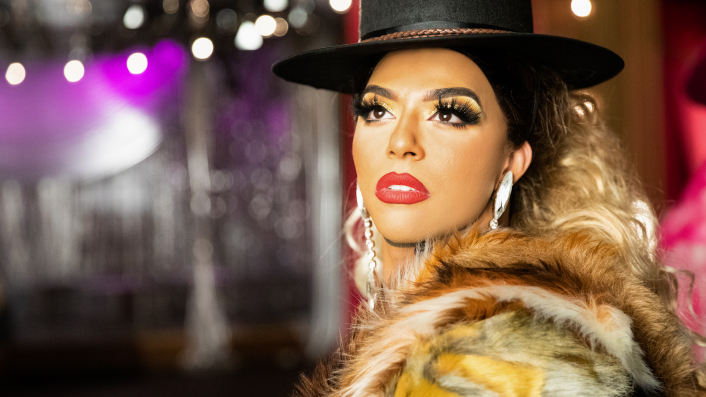
There are a lot of gentle corrections, like when one guy casually uses the term ‘coloured’ to describe black people and is told it’s an outdated term. My favourite exchange happens between Shangela and an elderly gentleman. “I’ve had a lot of gays work for me at my business,” says the latter.
Without missing a beat Shangela replies “What’s your business?”
“I run a coffee shop”
Shangela, dry as a damn bone: “Well, gays love coffee”
Such comedic brilliance you’d think it was scripted, but no. And in the gulf between Shangela’s wry humour and the older guy’s complete obliviousness lies We’re Here’s sweet spot.
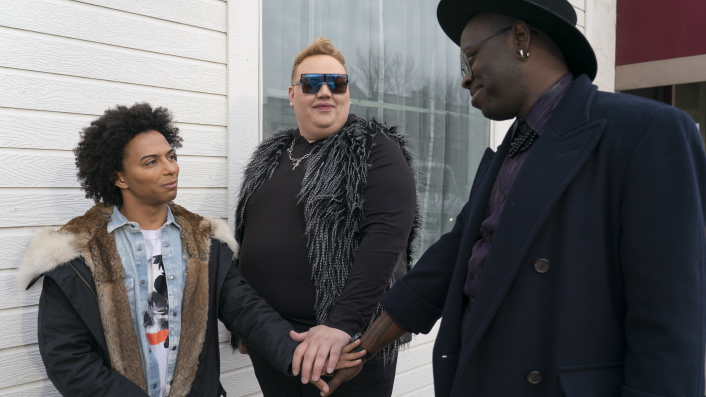
Mostly though, the moments that really stick are the ones where someone needs help, and is given it. Depression and suicide are mentioned with alarming regularity. Hunter, a young gay makeup artist tells Eureka “Sometimes life feels like a backpack of bricks”. When this is relayed to Hunter’s dad his face says a thousand things. You can literally see him torn between a lifetime of learning what it is to ‘be a man’ and his love for his son.
There is plenty of froth in We’re Here. It’s funny, cheeky, and mostly lighthearted. But really it serves to highlight the plight of multitudes of people in America who have struggled with, and are granted one night to fulfill, that most basic of needs—a chance to be themselves.







